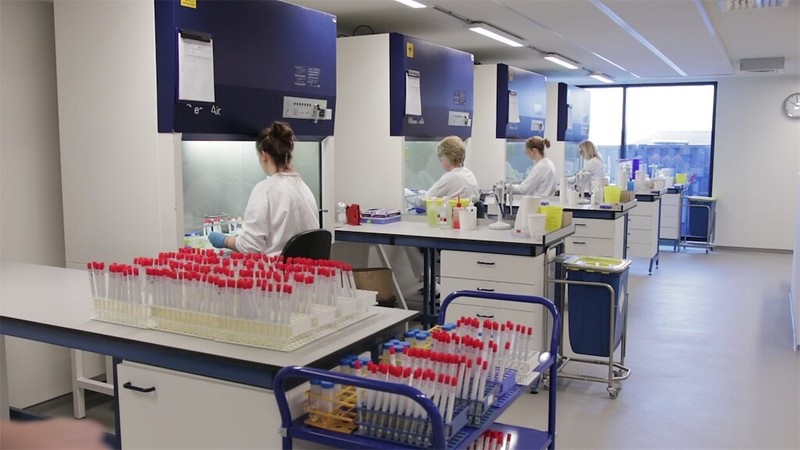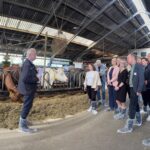Normally, the WUR institute in Lelystad would test some 300,000 samples a year for animal diseases and zoonoses. But since April, the institute is also carrying out corona tests, both in humans and in minks. The human tests started out with small amounts, some 150 per day. Still, since a few months, Bioveterinary Research (WBVR) works at full capacity, testing 1,400 human and mink samples daily, says Eefke Weesendorp, head of Diagnostics and Crisis Management at WBVR.
We are currently recouping our investments
Eefke Weesendorp, head of Diagnostics and Crisis Management at Wageningen Bioveterinary Research
In the coming week, the institute expects to carry out its 100,000th corona test. That is 5 per cent of the total number of tests in the Netherlands. At 2 to 3 per cent positives, the test results in Lelystad match the national average.
Weekend
‘The sheer volume of tests forms a challenge for our institute’, says Weesendorp. There are forty employees dedicated exclusively to the testing procedure. The vast majority of the tests are done by employees of the institute that normally contribute to research projects and other diagnostic activities. This team has been augmented with temporary workers. Some staff members have increased their working hours to process samples on the weekends. The institute works long hours from 7 am to 8 pm, seven days a week. During the weekends they burn the midnight oil preparing samples for testing.
Does this yield extra revenues for the institute? ‘We currently profit from the corona tests’, Weestendorp states, ‘but during the first months, we had to invest in testing capacity and had low revenues. We are now recouping our investment.’

 Testing facility in Lelystad, photo by Wageningen Bioveterinary Research
Testing facility in Lelystad, photo by Wageningen Bioveterinary Research 

